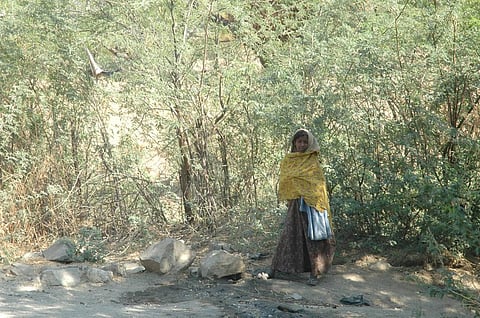

In what could be a wake-up call to global conservation efforts, a new report by the Rights and Resources Initiative (RRI) says that legal protections for indigenous and rural women to own and manage property are missing in India and 29 other low and middle-income countries, together which account for 3/4th of the developing world’s forest.
The study analysed 80 legal frameworks in these countries and said that although they all have ratified the UN Convention on the Elimination of All Forms of Discrimination against Women (CEDAW), not one met the minimum standards outlined in the Convention.
The lack of legal protection for women’s land rights can make community lands vulnerable to theft and exploitation, threatening the world’s tropical forests—a critical bulwark against climate change, adds the report. This also undermines the efforts to empower indigenous peoples and local communities, conservation efforts and reduce poverty.
Regarding India’s Forest Rights Act (FRA), 2006, the RRI report said that, “Although the act recognises the inheritability of Scheduled Tribes and Other Traditional Forest Dwellers' land, women's inheritance is not explicitly acknowledged, making women's rights to forests particularly vulnerable.”
The gender disparity in FRA, 2006 in the implementation has been highlighted previously by Down To Earth.
The FRA, 2006 in India is one of only two legal frameworks (out of 80) where women's community-level voting and leadership rights are guaranteed through a quorum requirement, it said. It explicitly recognises women as community-members, one of only 23 legal frameworks of the 80 identified in this analysis to do so.
Victoria Tauli-Corpuz, UN Special Rapporteur on the Rights of Indigenous Peoples said, ““Unless women have equal standing in all laws governing indigenous lands, their communities stand on fragile ground. For many indigenous peoples, it is the women who are the food producers and who manage their customary lands and forests. Safeguarding their rights will cement the rights of their communities to collectively own the lands and forests they have protected and depended on for generations.”
Only four countries—Bolivia, Brazil, Colombia, and Venezuela—were shown to have adequate legal protections concerning the rights of women to constitutional equal protection, property ownership/management and inheritance.
The report also highlights that protections for women in community tenure systems were markedly weaker than protections in national constitutions.
It said that legal frameworks which acknowledge communities as forest owners provide the greatest protections for women’s rights. In contrast, frameworks established for conservation purposes offer the fewest and weakest protections for women.
“This surprising finding is a wake-up call to global conservation organisations. Ensuring the rights of indigenous peoples, and particularly indigenous women, is paramount to successful conservation efforts,” Tauli-Corpuz added.
Other highlights of the report